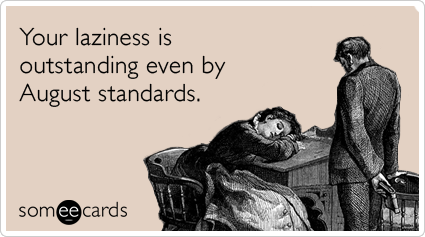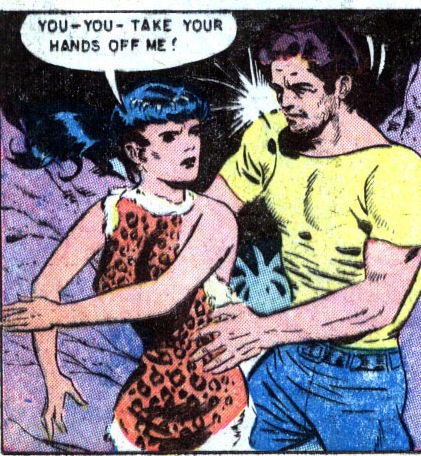Is The Client Always Right?: On Professionalism and Boundaries, Part 2

(You can find Part One of this discussion here.)
Lori: Taking a professional approach to my work makes it more enjoyable for me, but I hardly think that’s a universal experience. When it comes to being a professional and giving clients what they’re “owed”, I think the standards for acceptable behavior are actually pretty low. In most circumstances I’d say clients are at least owed honesty: about how we look, what services we offer, what our rates are, and what our skill levels are (especially as pro-kinksters), if not a certain level of service. But if you need to lie to a john to get by? Fuck, do it. If your rent is due and you’re afraid a regular won’t see you if he finds out you gained weight, don’t mention it. If you need to go food shopping, and a new client wants some elaborate bondage that you can’t do, say you can do it. The worst that can happen is he leaves having a slightly less exciting orgasm than he anticipated, and you get to go on staying alive. Seems like a fair deal to me. (The only exceptions to lying to clients, even for survival sex work, would be your experience with edge-play and high-risk activities—anything that could compromise his safety.)
I don’t want to get too far off-topic, but the civilian men I’ve been with have a spotty track record on boundary-pushing as well. Sexual coercion is a problem with patriarchy and male privilege. It changes based on context and will be worse when men think a woman falls way on the wrong side of the Madonna/whore dichotomy and they can pay her for unlimited access… but it’s not exclusive to that context. The sex industry is patriarchy turned up to 11, but patriarchy is still like a 9 everywhere else.
Charlotte: I agree about what clients are owed; I’m an advocate for accurate descriptions of appearance, personality, and services offered. I’ll get mad on behalf of a client if I hear that he once saw a woman who totally ripped him off or who got so trashed she almost passed out, or even if she helped herself to his minibar without asking. (I’m probably kind of uptight when it come to etiquette like that in general, though.) There have been times when I’ve wondered if women who are pure rip offs even “count” as sex workers. Is it sex work to pretend you’re going to have some type of sexual contact with someone but then take their money and run? I think that’s theft, not work.
But I lie to clients all the time if they push me on things I don’t want to share, like my real name or what I was doing on a weekend when I wasn’t working, or whether I’m in a relationship. I do not think any client is owed information about my private life or identity, even the ones I’ve known for years. And I’m shocked by how pushy regulars can be about that type of stuff. I’m not a good liar, and if someone is really persistent while questioning me about personal details, sometimes I slip and give out something that would be identifying if they went hard on Google. And it feels so violating, to be worn down that way. I hope they don’t understand how violating it is, and that they’re just clueless instead of cruel. But who knows.
I also think clients are owed some emotional honesty in the sense that I do not approve of serious manipulation of the “I love you” variety. Part of me recognizes that this is my own personal moral boundary, and another part of me feels very, very strongly that there is nothing ethical or defensible about telling a client (or anyone!) that you love him in order to get more money. I had a very devoted webcam client years and years ago whom I hustled pretty hard with one huge lie, mostly just to see if I could get away with it. I got a lot of money from it but it wasn’t worth it. If there’s anything in my life I am completely ashamed of, it’s that. The only remotely redeeming factor is that I told him it would go towards my school tuition, and it did.
 Below, four in-person sex working professionals discuss how to maintain boundaries while keeping clients happy, the most common problems that cause conflicts with customers, and what they think professionalism means in the context of a career plagued by stigma and illegality. Part two will be posted tomorrow. The women weighing in are
Below, four in-person sex working professionals discuss how to maintain boundaries while keeping clients happy, the most common problems that cause conflicts with customers, and what they think professionalism means in the context of a career plagued by stigma and illegality. Part two will be posted tomorrow. The women weighing in are 

Handling The Review Boards
Every portrait that is painted with feeling is a portrait of the artist, not of the sitter.
—Oscar Wilde
There is no human experience so intimate and personal that people won’t publicly dissect it. Childbirth. Funerals. Cancer treatments. And sex. I agree with much of what has already been said here on T&S about the problems inherent to some sex work review boards. The whole concept of reviewing an erotic encounter that one was a participant in is an odd idea; it’s like having like a theater critic be in the cast of the play. How can one ignore the fact that the critic played some part in how the show turned out? But, especially with experiences that touch on primal emotions, people search for ways to bring some intellectual analysis to what they are feeling—with mixed degrees of success. Some sex worker reviews are truthful, insightful, and useful: others are more like naked bathroom selfies of the reviewer, with all the perils inherent to that art.
I’ve been reviewed, as an escort and as a pro domme, on both escort boards and sites specifically about professional dominance. Some reviews were positive, some not so much. Of course I prefer the paeans to my beauty and skill—who doesn’t? But I’ve learned to not take any of them too seriously, because I got toughened up in an equally merciless school: reviews and comments on my writing.